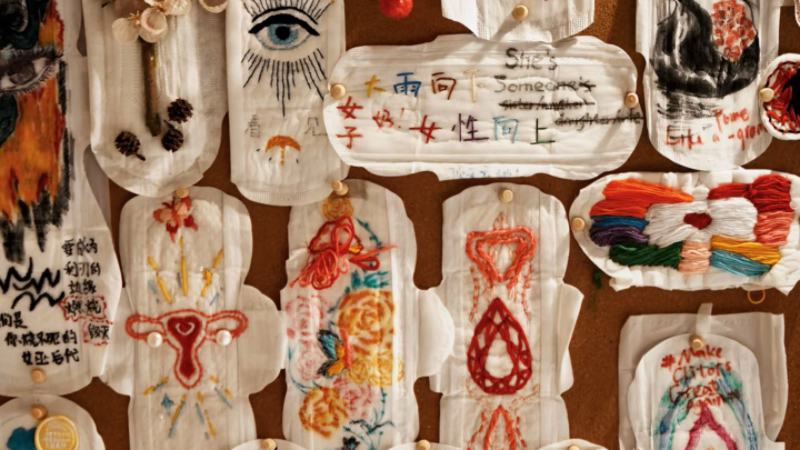As grassroots groups deliver pads to rural schools, China’s young feminists are confronting taboo, poverty, and politics. Can their acts of solidarity reshape the country’s future for women?
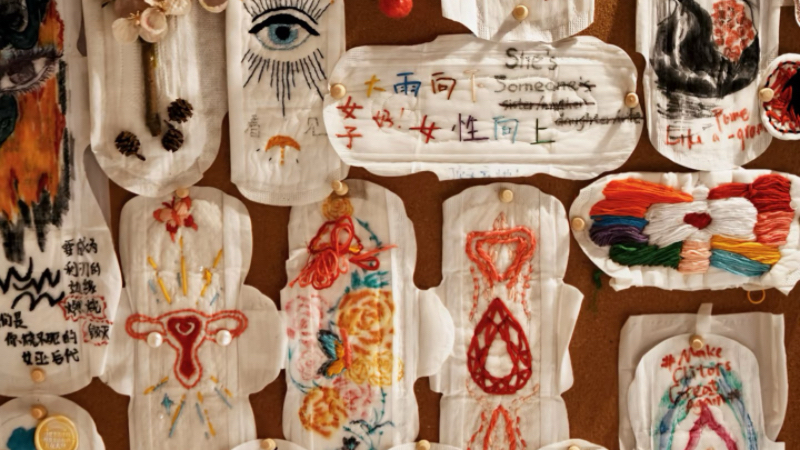
On a chilly morning in early spring, four undergraduate students arrived at a rural middle school in Sichuan Province carrying suitcases filled not with books or food but sanitary pads. Inside the classrooms, dozens of girls waited shyly as the students handed out small pouches containing pads and a booklet on adolescent health. For many of the girls, it was the first time anyone had openly discussed menstruation in their school.
What began as a simple donation drive has now become part of a nationwide movement. Across China, grassroots initiatives are trying to close the gap for what has been called “period poverty,” a situation where women and girls struggle to afford or access sanitary products. A year ago, few people spoke publicly about it. Today, it is at the center of debates about women’s health, consumer rights, and the meaning of feminism in China.
At the heart of this shift is a 23-year-old graduate student who founded the group Me and Her. “This activity wasn’t started because I became aware of menstrual poverty. It began because, in the last two or three years, feminism has gained some traction in our country,” Run Han says. Growing up in a remote area, she had seen firsthand what period poverty looked like.
Her story began almost by accident. After posting a casual note on Rednotes, the most popular social media now in China, asking if anyone could donate clothes to children in poor areas, another user asked whether there were other needs. She remembered that a school she knew had once distributed pads, so she suggested donating sanitary products.
“I thought of distributing pads to the children there, and after sending some to the school, we had extras, so I decided to distribute them to nearby towns. Eventually, I connected with other schools across the country, which led to the current scale of this activity,” says Han.
From that moment, Me and Her took shape. Within a year, the group had delivered more than 342,000 pads to 4,900 girls. By July 2025, the figure had nearly doubled, reaching 600,000 pads and almost 10,000 beneficiaries. Each child typically receives about 60 pads at a time, along with a pouch and a health manual. Teachers are encouraged to give lessons during distribution, ensuring that the campaign is about more than just material aid.
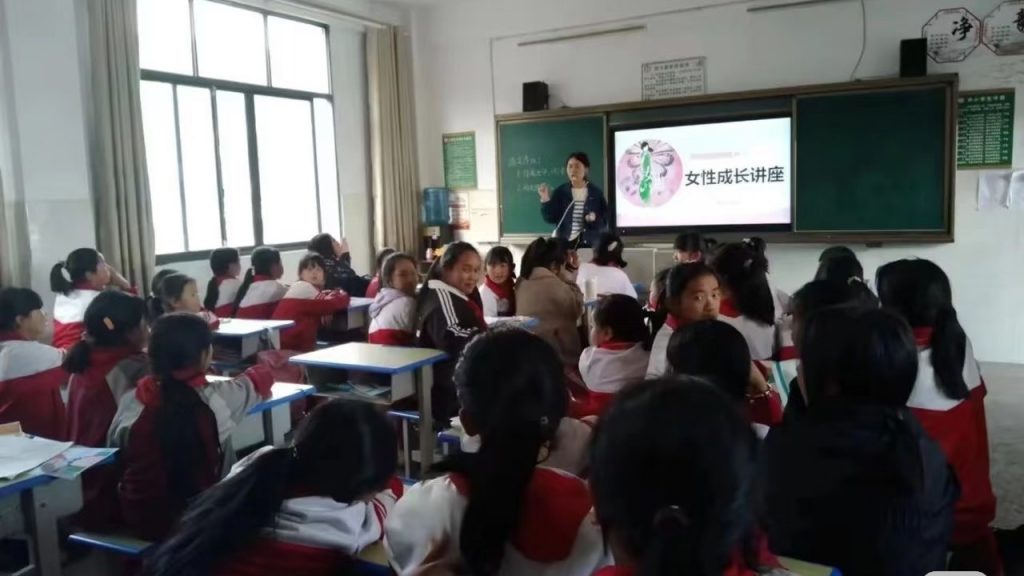
The silence runs deep. In her own childhood, Han recalls how teachers in her village gave vague lectures about self-respect rather than practical health education. Pads were rarely mentioned, and girls quietly taught each other how to use them in restrooms.
She remembers saving her pocket money to buy her first pack because her mother never provided them. “The way teachers conveyed their messages was more about what girls shouldn’t do rather than guiding them positively,” she says.
The consequences of this silence are serious. A 2021 report by Southern Weekly found that in some rural areas, one in ten girls resorted to using tissue paper, cloth, or even newspapers during menstruation. Meanwhile, the cost of pads remains high. China still imposes a 13 percent value-added tax on sanitary products, the same rate applied to luxury goods like jewelry, prompting activists to label it a “tampon tax.” For a girl from a low-income household, this expense can be a lot.
Even when money is available, quality is not guaranteed. The founder recalls seeing listings on Pinduoduo, a budget e-commerce platform, offering 100 pads for less than 10 yuan (about £1). Teachers reported that many children bought these products, which were not from reputable brands and often appeared dirty. “Children there might not even recognize certain brands,” she says.
The risks are real. Gynecologists warn that low-quality pads can cause irritation, infections, and even long-term reproductive health problems. The recent sanitary pad scandal, in which a nationwide investigation found nearly 90 percent of products were shorter than advertised, only added to fears.
“Before better products emerge, children have no choice but to use existing pads,” the founder says. “Although alternatives like tampons and menstrual cups exist, if they are not taught to use them properly, it could lead to problems. Currently, the mainstream brands are the only options available.”
Despite these obstacles, Me and Her has found innovative ways to operate. The group does not raise funds directly to avoid legal risks but instead connects donors with schools. Volunteers collect data on student numbers, match them with kind-hearted individuals willing to buy pads, and arrange deliveries. Teachers send back photos and videos to confirm receipt. “This way, we ensure all pads reach the children, with teachers being local and very responsible,” she says.
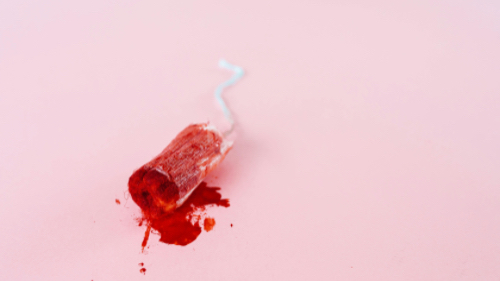
Operating outside official structures is not easy. China’s government strictly regulates NGOs and fundraising platforms. In 2024, new restrictions forced the group to pause operations temporarily. “Our organization is a grassroots initiative, not government-registered, which carries some legal risks,” Han says. “Another issue is the quality of the pads. If we mention needing to buy medications for menstrual discomfort, we need to be cautious.”
Financial sustainability is another challenge. The group has about 15 core members, most of them students or young professionals. “Our activities often lack efficiency because they are organized during our free time, which can be tiring. We also need more promotional staff, such as content creators and editors,” she says. Still, some small businesses and companies provide regular donations, and detailed expense reports are published to maintain transparency.
Beyond logistics, the project is reshaping how young Chinese women think about themselves. Social media has been a powerful tool. The group runs accounts on Tiktol, Kuaishou, Weibo, and Rednotes, where girls often leave thank you comments. Some write about how they no longer feel embarrassed asking for pads at school. Others post photos of the pouches, decorated with messages of encouragement.
Han sees this attention as a sign of progress. “If people are using women’s rights or menstrual poverty for clicks, it shows these issues are gaining attention, which is better than before. At least we’re discussing them openly now.”
Her optimism is echoed by scholars who study Chinese feminism. While state authorities have clamped down on feminist NGOs in recent years, young women continue to mobilize around concrete issues like period poverty, workplace discrimination, and domestic violence. According to sociologist Leta Hong Fincher, the movement is leaderless but resilient, fueled by online communities and grassroots initiatives rather than formal organizations.
Today, identifying as a feminist in China often carries political and social risks. Online spaces for discussion have narrowed, with major online forums shut down in 2021 for allegedly promoting radical views. Public figures such as comedian Yang Li, who has quipped man in a talk show, have faced harassment and official scrutiny, while feminist voices are frequently mocked with the derogatory slang “女拳,” likening them to “feminazis.”
Yet this stigma contrasts sharply with China’s past. Feminism was once tied closely to modernization and reform. In the late Qing dynasty, reformers campaigned against foot-binding and promoted women’s education. Groups like the Chinese Women’s Society founded the country’s first girls’ school and Women’s Journal, a newspaper advocating gender equality and freedom in marriage. Women also played active roles in the 1911 Revolution, with leaders like Tang Qunying forming a female army and demanding political rights that were excluded from the new republic’s constitution.
But in recent years under Xi Jinping, the space for feminist activism has steadily narrowed. Keywords such as “feminism” and “MeToo” are treated as politically sensitive online, and in early 2025 dozens of feminist accounts on platforms like Weibo and Douban were abruptly shut down. Among those targeted was a 32-year-old activist from Beijing and one of the best-known figures in China’s women’s movement. In April, her Weibo account was deleted for allegedly posting “illegal and harmful information,” a charge she firmly denies. Authorities and platforms often justify such crackdowns by claiming that feminists disturb social order, but activists see them as an attempt to erase their voices.
Other countries are already moving in directions Chinese activists hope to see. In 2020, Scotland became the first country in the world to provide free sanitary products to all who need them, after campaigners argued that period poverty was a barrier to education and dignity. In New Zealand, schools have been required since 2021 to offer free pads and tampons to students. India has also introduced low-cost sanitary pad schemes in rural areas, though challenges of stigma and quality remain. These policies have inspired Chinese feminists, who often cite them online when calling for reform.
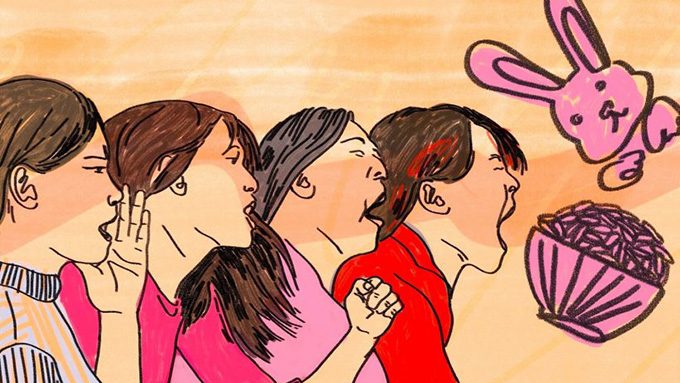
Yet obstacles remain. “The most important thing is that the leaders haven’t considered this problem,” the founder says, referring to government policy. Activists have long called for lower taxes on pads and more comprehensive sex education, but progress has been slow. In July 2025, authorities announced stricter product standards for pads, including bans on recycled materials and fluorescent chemicals. But there has been no discussion of affordability or accessibility for rural girls.
For now, the burden falls on small groups like Me and Her. Its members are young and often juggling studies or jobs, but they are driven by a sense of solidarity. “I believe it’s not just me; it’s about everyone involved. Our name reflects that: I and Millions of Her,” Han says. “If not for our volunteers and teachers, this wouldn’t be possible.”
Her work shows a paradox at the heart of China’s feminist development. On the one hand, open activism is constrained by law. On the other, the lived realities of women: period poverty, harassment, inequality are increasingly hard to ignore. By focusing on tangible needs like pads, groups like Me and Her are finding a way to act without directly confronting the state.
Whether this quiet activism will lead to broader change remains uncertain. But for girls in rural Sichuan, receiving a pouch of pads means immediate relief. For young women in cities, it signals that their struggles are being recognized. And for the founder, it is proof that even in difficult conditions, solidarity can grow.
As she reflects on her journey, she recalls why she chose her graduate program in environmental science. “When I studied it, I wanted to clean up the polluted river near my home. I thought I could make a difference, and now I feel similarly about this activity.”
Small gestures of sending pads to a village school, sharing a story online, leaving a thank-you comment are building a new language of feminism in China. It is a language rooted not in slogans but in shared experiences, in the belief that dignity in something as ordinary as menstruation should not be a privilege.
